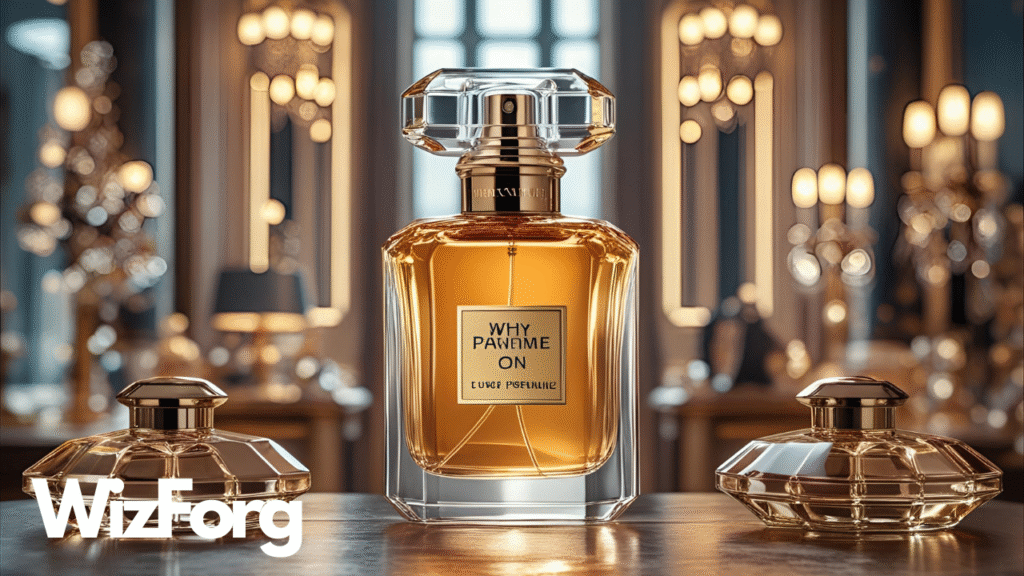Luxury perfumes crafted in Paris, Milan, and Grasse are often described as timeless works of art in the realm of olfaction. But what most people don’t know is this: the version you buy in Europe isn’t always the same as what you’ll find in the U.S. Many luxury fragrances must be reformulated or restricted before they can even land on American shelves.
Here’s why your favorite designer scent might smell a little different—and what’s behind the fragrance regulations that change the bottle without changing the label.
The Quiet Reformulation No One Talks About
When a perfume crosses international borders, it doesn’t always travel in its original formula. Many U.S. versions of high-end perfumes are modified to comply with domestic safety and labeling regulations. Sometimes the changes are subtle—barely noticeable. Other times, entire ingredients are removed or replaced.
Why? U.S. cosmetic regulations, overseen by the FDA, require specific disclosures and restrict the use of certain substances deemed allergens, carcinogens, or sensitizers. Even if an ingredient is considered safe in Europe, it might raise red flags under American law.
The IFRA and the FDA: A Battle of Standards
The International Fragrance Association (IFRA), based in Geneva, creates global guidelines on fragrance safety. Major European brands tend to follow IFRA standards, which already limit some natural ingredients, such as oakmoss, due to allergy concerns.
In the U.S., however, the FDA plays a more hands-off role regarding fragrance transparency. While the agency does regulate cosmetics, it doesn’t require full disclosure of all fragrance components—many are legally allowed to be bundled under the word “fragrance” on the label. Still, when specific ingredients are banned or flagged (like nitro musks or certain phthalates), manufacturers have no choice but to adjust their formulas.
Ingredient Bans and the Allergen List
One of the biggest issues is allergens. The European Union requires fragrances to list 26 specific allergenic substances if present in concentrations above a certain threshold. Some of these—such as eugenol (found in clove oil) or coumarin (found in tonka beans)—are naturally occurring but still require warnings.
The U.S. doesn’t require the same allergen warnings, but if a product causes a reaction or violates safety thresholds, it can be recalled or blocked from import. As a result, brands often simplify or change their formulas before launching in the American market to avoid risk.
Natural Doesn’t Always Mean Legal
Ironically, many of the ingredients at risk are natural, including mosses, resins, and essential oils. These give classic perfumes their rich, earthy character. But because natural ingredients can vary and trigger allergic reactions, they’re more strictly regulated than synthetic alternatives.
That means your luxurious, heritage scent might lose some of its complexity in the U.S. version, replaced with lab-made substitutes that mimic the original but lack the same depth.
Different Markets, Different Perfumes
This isn’t just about safety—it’s also about consumer preference. Americans often prefer lighter, cleaner, or fruitier scents compared to the more intense, musky, or spicy profiles favored in Europe and the Middle East. So, even when regulations don’t require it, some companies reformulate for market appeal.
The result? A bottle that looks the same in Paris and New York, but smells slightly—or significantly—different.
What You Can Do About It
If you’re a perfume purist, you still have options. Many travelers purchase fragrance abroad and bring it home (within personal import limits). Others seek out “export” versions or hunt down vintage bottles that predate reformulations. Some niche perfume brands also offer EU-compliant formulas to U.S. buyers through specialty retailers.
But be careful: importing restricted formulations for resale or in large quantities can raise legal and customs issues.
Final Thoughts
Perfume is more than just a luxury—it’s chemistry, culture, and regulation in a bottle. While most people never notice the differences, fragrance lovers know that what you smell in Europe isn’t always what you get in America.
So next time your favorite scent smells just a little off, it might not be your nose—it might be the law.
Love discovering the surprising limits behind luxury?
Explore more hidden truths behind everyday products at Wizforg.com, and follow our YouTube channel for curious deep dives into the world’s most exclusive (and restricted) goods.



